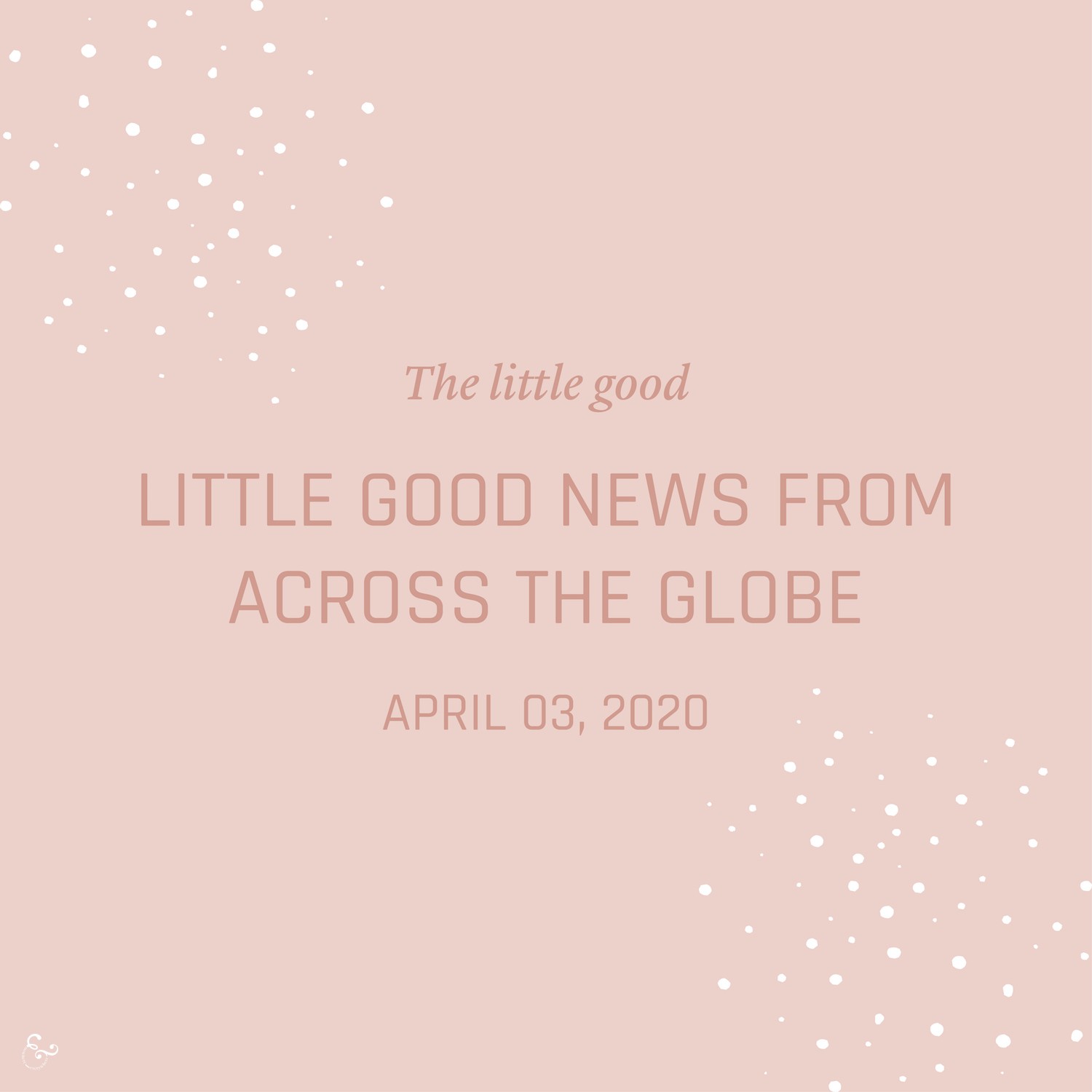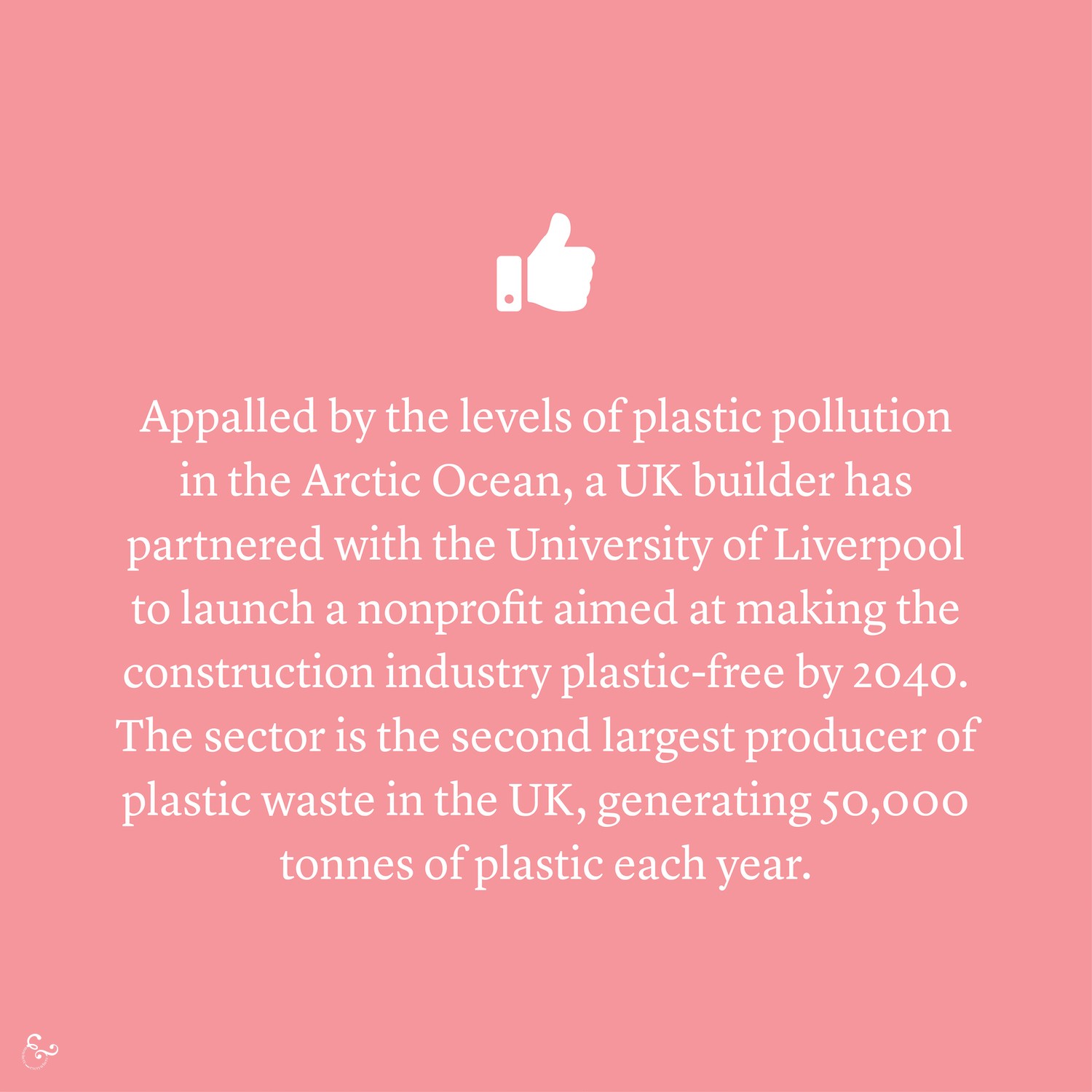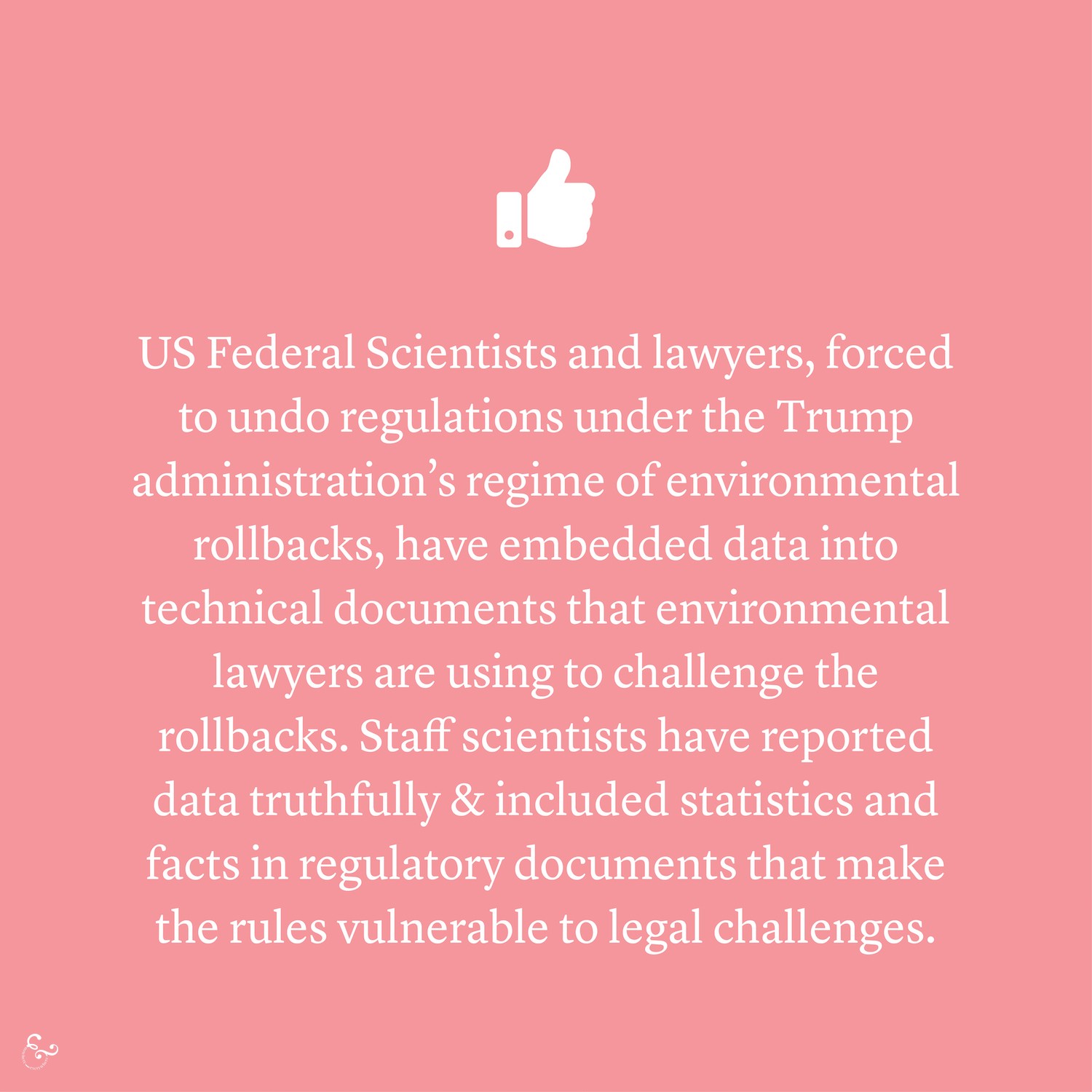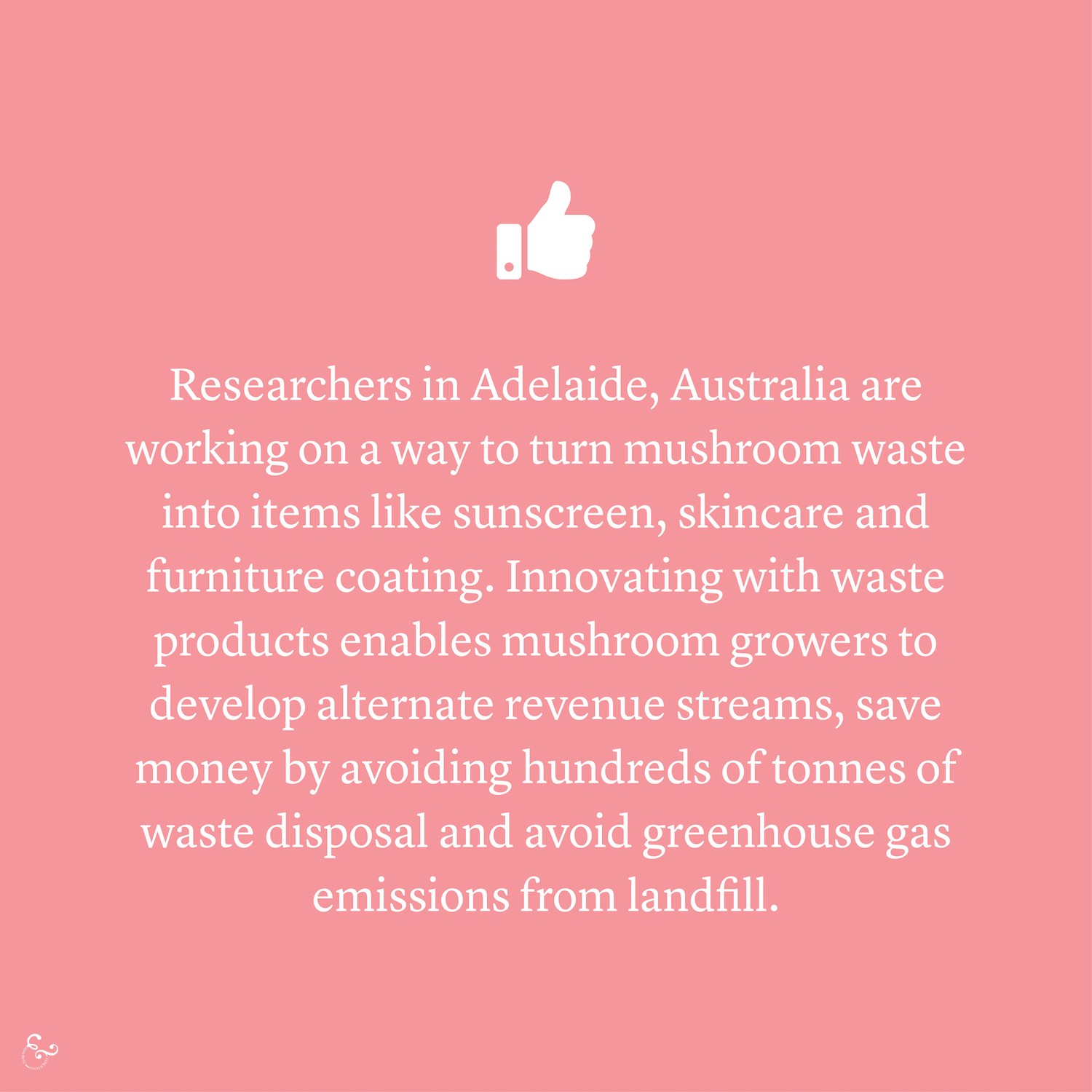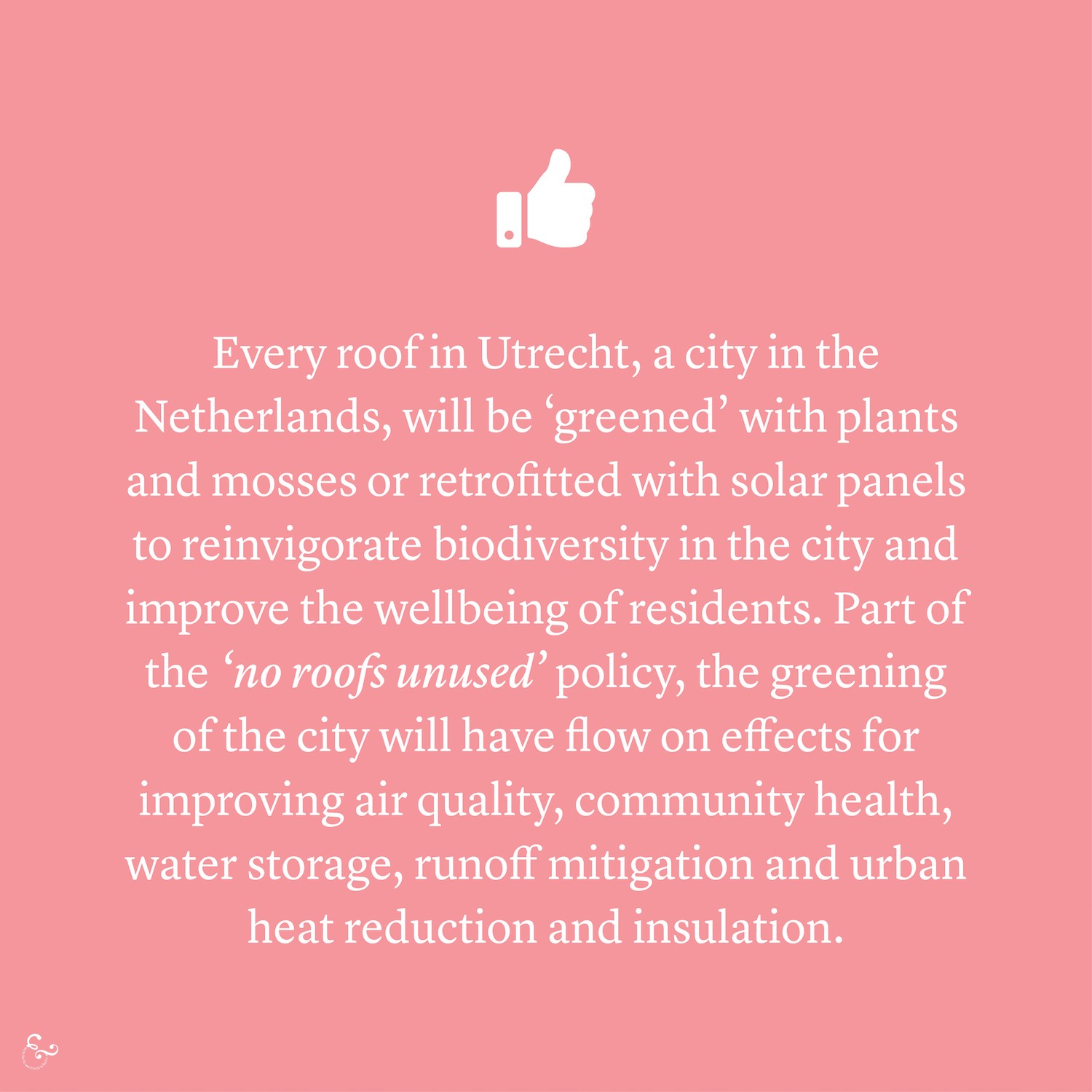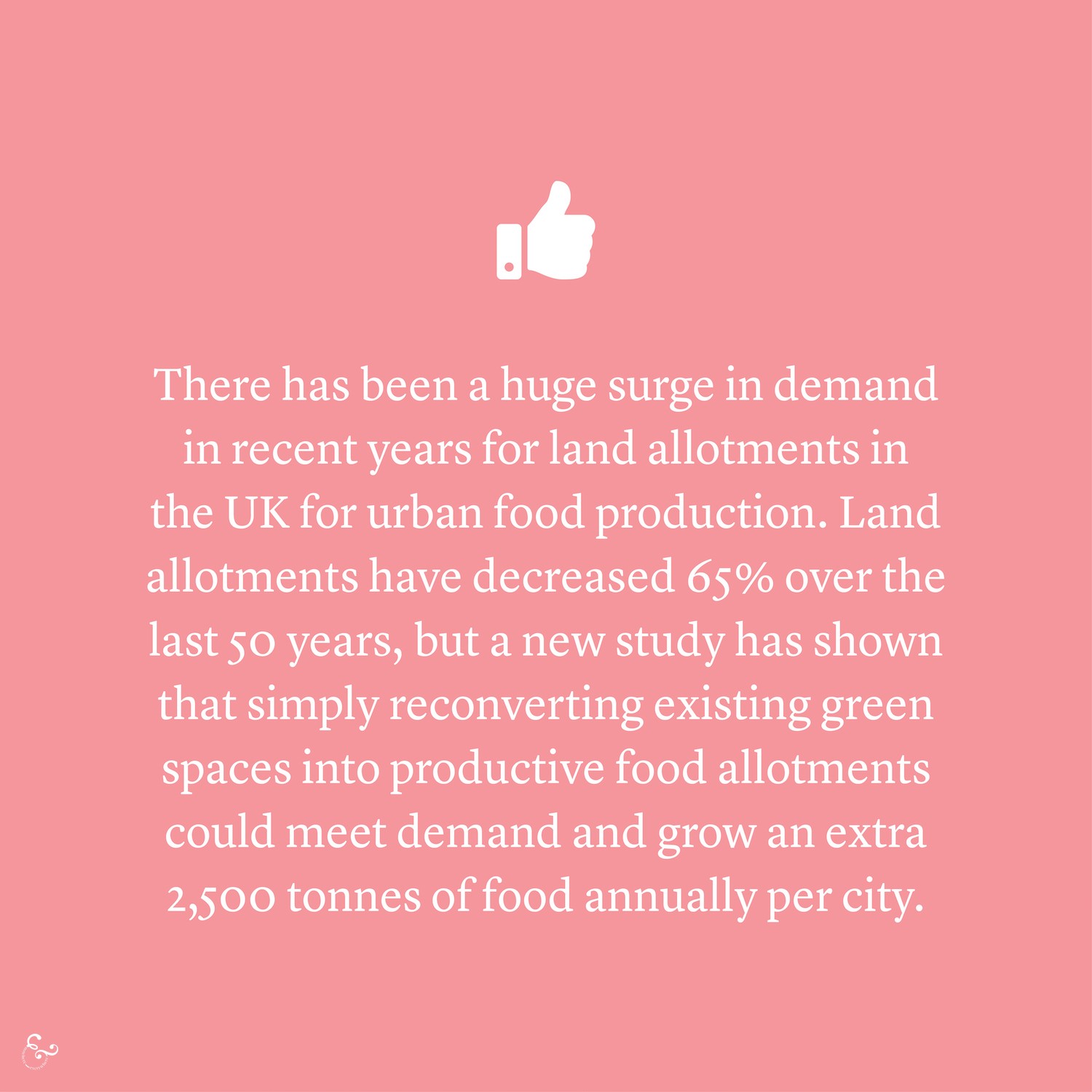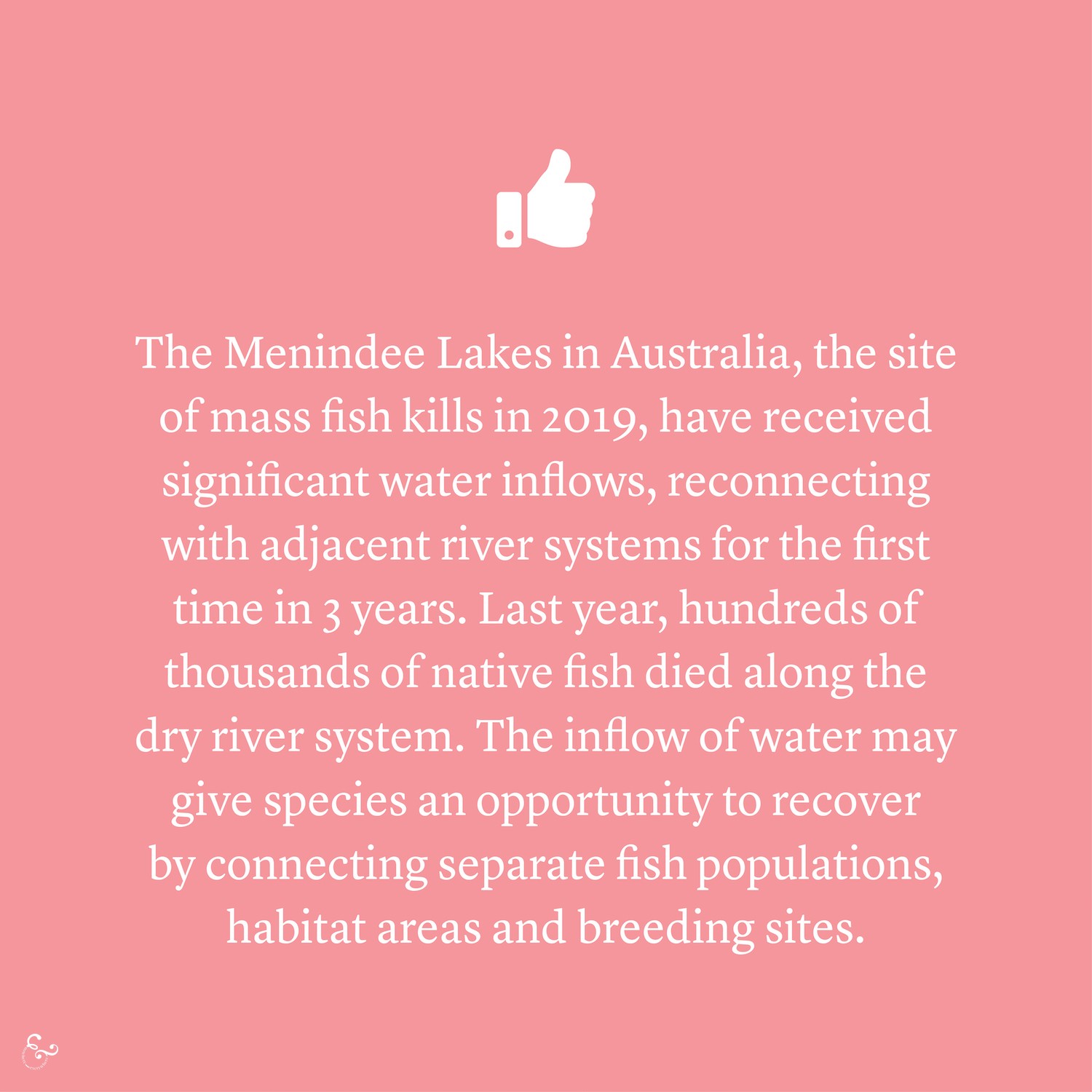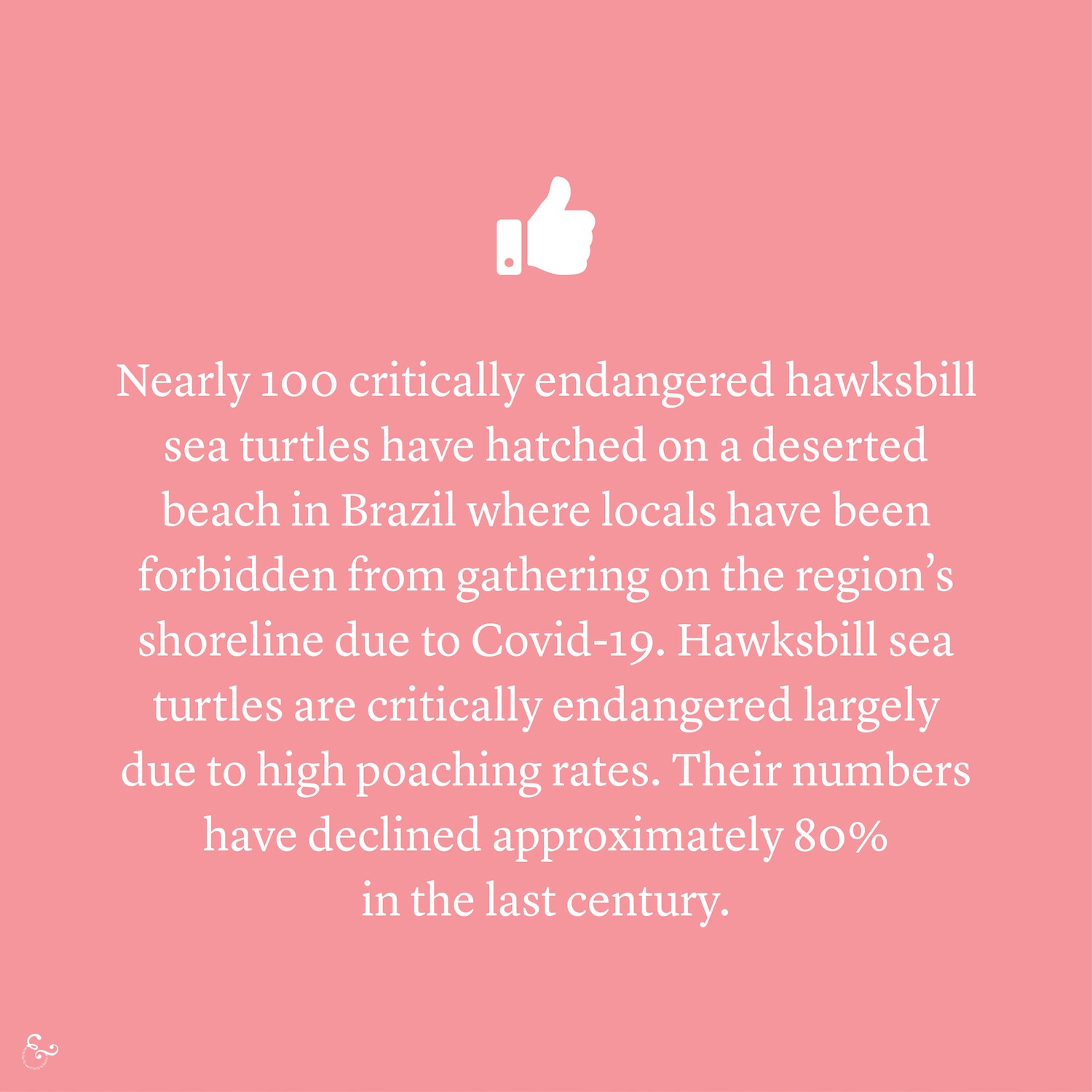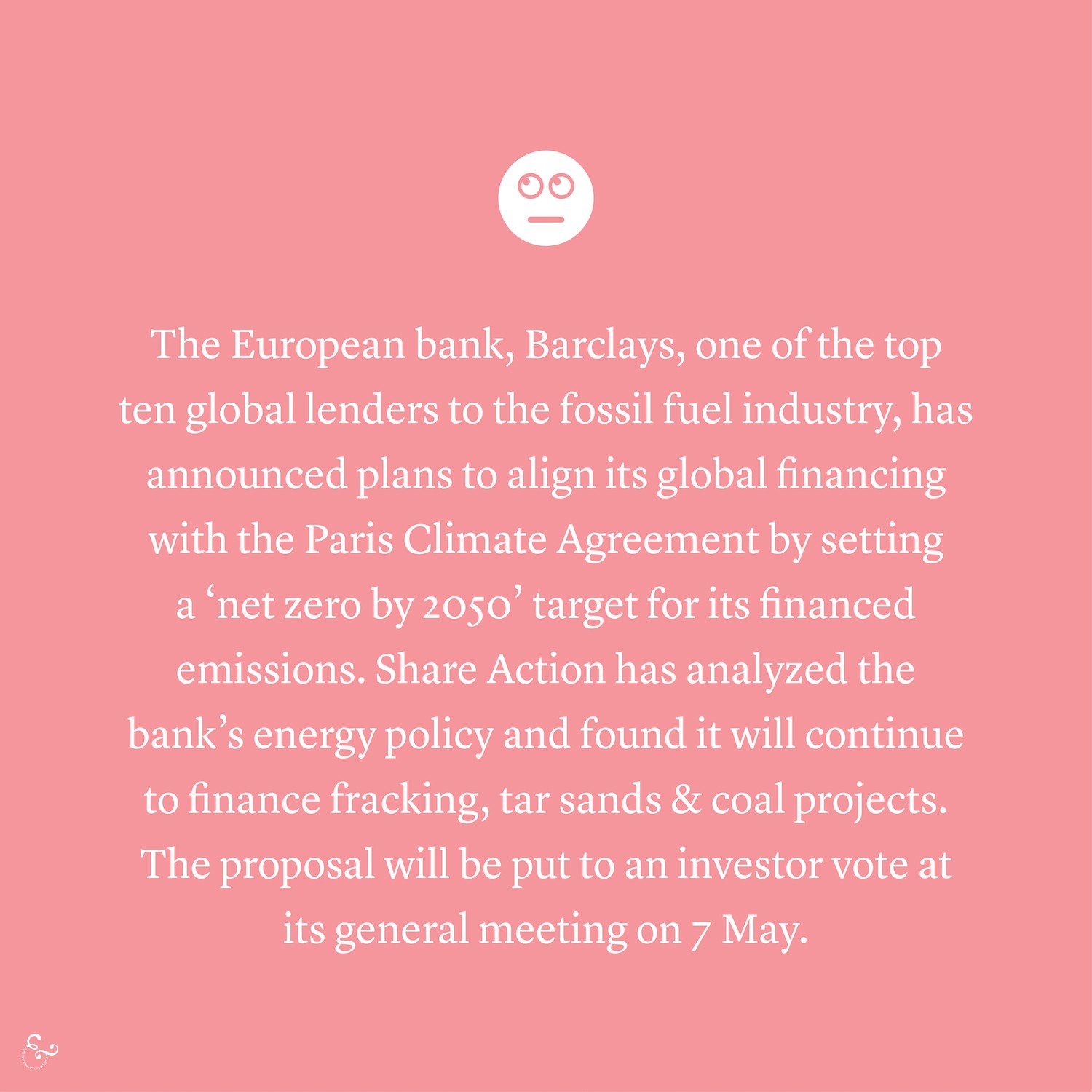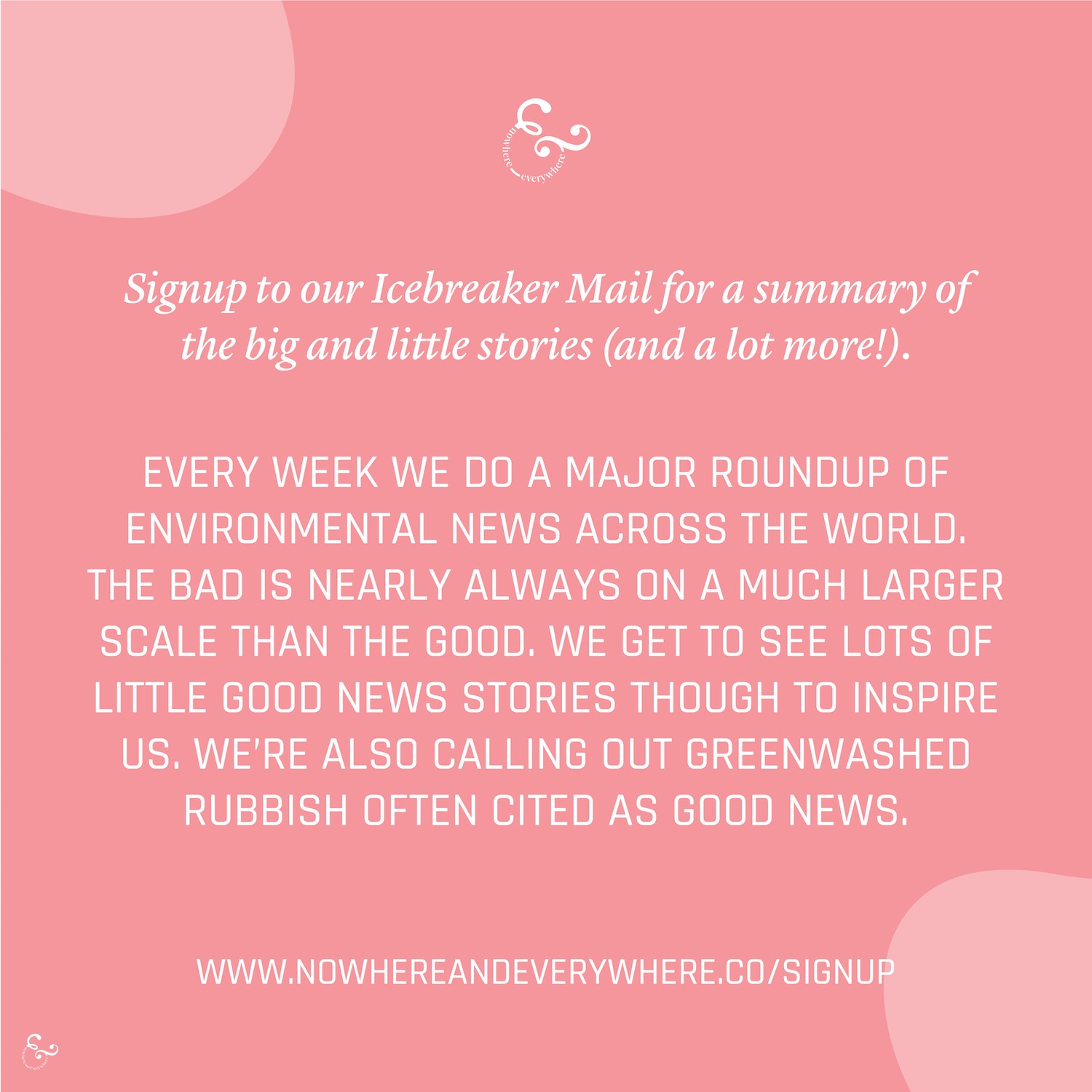Every week we do a major roundup of environmental news across the world. It is really important we all know it and share it, but it can also be pretty disheartening. The bad news is nearly always on a much, much larger scale than the good. The next few years are probably going to look the same as we enter climate feedback loops, profit incentives continue to grow, population increases and we continue to stall on our Paris Agreements. We’re interested in education, understanding systems, and the levers we can all pull for change.
But during this mammoth effort every week, we also get to see lots of little good news stories pass through our initial filter which we’re posting here. We can use these to inspire us, give us ideas in our own communities and potentially scale them up. Environmental good news can often be fairly greenwashed so we’re not interested in that and won’t consider it good news. If you see a story and decide to implement it where you live, we’d absolutely love to hear about it! Please tag us in or email us and let’s create a world of lots of local change which collectively has big impact.
- US Federal Scientists and lawyers, forced to undo regulations under the Trump administration’s regime of environmental rollbacks, have embedded data into technical documents that environmental lawyers are using to challenge the rollbacks. Scattered throughout reports and supplementary documents, staff scientists have included statistics and data in regulatory documents that make the rules vulnerable to legal challenges. In other words, they are doing their jobs to report scientific data and facts truthfully to ensure that science informs policy outcomes and protects the public. (NYT)
- Appalled by the levels of plastic pollution in the Arctic Ocean, a UK builder has partnered with the University of Liverpool to launch a nonprofit aimed at making the construction industry plastic-free by 2040. The sector is the second largest producer of plastic waste in the UK, generating 50,000 tonnes of plastic each year in the form of paints, plastic wrapping, styrofoam for concrete structures, and building materials. The organization has drafted a charter, with the hope of government and building association endorsement, to phase out plastic use in the industry and create a building material guide to inform builders and DIY consumers. They argue that plastic is doing the same amount of damage to our health and planet as asbestos, and should be treated the same way. (The Guardian)
- Technology advancements such as camera traps and artificial intelligence data analysis, are enabling greater understanding of biodiversity and making it possible to study species without human disturbance. Using this technology, scientists conducted a thorough survey of the remote rainforest in Africa’s Salonga National Park, gathering vital information on the conservation status of vulnerable species. Conservation and protection initiatives are impossible without abundance, distribution, and behavioral data of wild species and these new technological advancements are vital to ensure biodiversity can be measured and preserved before it is lost. (The Conversation)
- A type of methane-oxidizing bacteria has been discovered living in upland Arctic soils that could partially offset some of the methane emissions rapidly releasing from permafrost. Whilst the discovery doesn’t completely solve the alarming release of potent greenhouse gases from the thawing permafrost, the report projects that permafrost emissions will increase by 18% by 2100, rather than doubling as in previous models. We’re not quite sure whether this should be considered good news, but the discovery will help to inform more accurate climate models, and the bacteria can potentially be harnessed in emissions capture applications. (Yale / Nature)
- Researchers in Australia (Adelaide) are working on a way to turn mushroom waste into items like sunscreen, skincare products and outdoor furniture coating. Innovating with waste products and designing circular economies enables mushroom growers to develop alternate revenue streams, save money by avoiding hundreds of tonnes of waste disposal and avoid greenhouse gas emissions from landfill. One of the by-products is a translucent film that could potentially be used to package the mushrooms themselves (where this is actually necessary!). (ABC)
- Every roof in the Dutch city of Utrecht will be ‘greened’ with plants and mosses or retrofitted with solar panels to reinvigorate biodiversity in the city and improve the wellbeing of residents. Part of the ‘no roofs unused’ policy, the greening of the city will have flow on effects for improving air quality, community health, water storage, runoff mitigation and urban heat reduction and insulation. (The Guardian)
- There has been a huge surge in demand in recent years for land allotments in the UK for urban food production, signalling a renewed interest for localized food production systems. Land allotments have decreased by 65% over the last 50 years, but a new study has shown that simply reconverting existing green spaces into productive urban food allotments could meet demand and grow an extra 2,500 tonnes of food annually per city. (Independent)
- The Menindee Lakes in Australia, the site of mass fish kills in 2019, have received significant water inflows, reconnecting with adjacent river systems for the first time in 3 years. This comes as parts of inland Australia experience the wettest start to the year in nearly a decade, after the hottest, driest year on record. Last year, hundreds of thousands of native fish died along the parched river system, and the inflow of water gives the species’ an opportunity to recover by connecting separate fish populations, habitat areas and breeding sites. (ABC / The Guardian)
Calling out greenwashing
Barclays / The European bank, Barclays, one of the top ten global lenders to the fossil fuel industry, has announced plans to align its global financing with the Paris Climate Agreement by setting a ‘net zero by 2050’ target for its financed emissions. The move by Barclays to shift its investment portfolio, follows increasing investor and shareholder pressure to reduce the bank’s expansive carbon footprint and invest in green financing and innovation. However, responsible investment charity, Share Action, has analyzed the bank’s energy policy, and found that while the bank has made genuine progress on its Arctic oil policy, it will continue to finance fracking, tar sands and coal projects. (Environmental Leader / Share Action 1 / Share Action 2)
“Barclays’ refusal to withdraw support for the most polluting companies and fuels and commitment to engage with its clients on timelines that are clearly incompatible with the Paris goals raise doubts about the bank’s ability to meet its net zero ambition.” – Share Action
We’re keeping an eye on…
Nestlè / Nestlé has reported significant progress in efforts to help end deforestation and restore forests in its cocoa supply chain in Côte d’Ivoire and Ghana. Over the past months, Nestlé has mapped over 75 percent of the 120,000 cocoa farms in the region to ensure that none are located in protected forests. The company is also providing fruit trees to growers in order to shade the cocoa trees to enhance their climate resilience (for their profits of course!) as well as providing an alternate source of income and food for the farmers. Nestlé has also announced goals to improve its supply-chain sustainability and transparency for palm oil (currently only 62% of their supply is traceable), as well as reducing virgin plastic use in its packaging by a third by 2025 (we think they can do much better than that).
It’s obviously a lot of press they’re trying to get out there and doesn’t address the exploited and slave labor either. But we’ll keep an eye on it.
